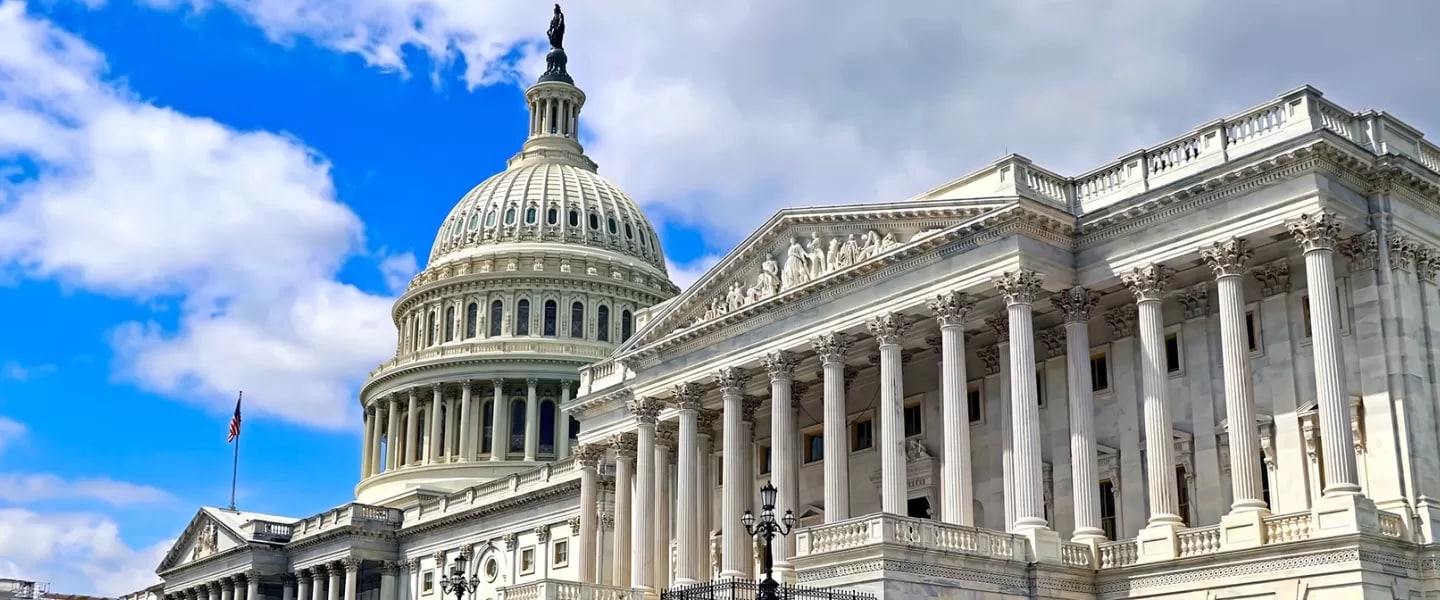
U.S. Congress Members introduced bipartisan legislation on Thursday in hopes of overturning the Securities and Exchange Commission’s (SEC) controversial Staff Accounting Bulletin 121 (SAB 121).
Senator Cynthia Lummis (R-WY), Representative Wiley Nickel (D-NC), and Mike Flood (R-NE) have joined forces to introduce a Congressional Review Act resolution set to challenge SAB 121, which requires banks safeguarding crypto assets to present a corresponding liability on its balance sheets.
Is The SEC Overstepping Regulatory Authority With SAB 121?
A press release from Senator Lummis’ office stated that SAB 121 has “serious implications for consumers and banks by confusing the distinction between customer assets and bank assets, threatening the foundation of essential custody services and increasing bankruptcy risk for consumers.”
Chair @GaryGensler’s SAB 121 has virtually blocked banks from serving as custodians of digital assets. Today, @RepWileyNickel, @SenLummis, and I introduced resolutions to repeal @SECGov‘s terrible bulletin.
SAB 121’s days are numbered – it’s time for it to go! 📝🗑️ pic.twitter.com/jTQDdbMm3I
— Rep. Mike Flood (@USRepMikeFlood) February 1, 2024
Representative Nickel suggested that the accounting bulletin is just another way the SEC continues “to overstep regulatory authority,” labeling the federal agency’s regulatory approach on digital assets “untenable.”
Congress Steps Up Crypto Regulation Efforts
Despite recent Congressional criticism, this is far from the first time the SEC has faced claims that their regulatory stance is unsustainable.
In July 2023, Coinbase’s chief legal officer and general counsel Paul Grewal told CNBC in part that “SEC’s reliance on an enforcement-only approach in the absence of clear rules for the digital asset industry is hurting America’s economic competitiveness.”
Additionally, a recent report from 21Shares stated that regulatory uncertainty is pushing several valuable crypto firms overseas.
“In the face of overreach by a regulator, it is the role of Congress to serve as a check,” Representative Flood stated. “I am proud to jointly introduce a bipartisan resolution of congressional disapproval with Senator Lummis and Congressman Nickel to fulfill that role.”
SEC Chair Gary Gensler Doubles Down
Some players from the banking industry joined their voices in support of Thursday’s legislative pushback against the SEC.
“SAB 121’s requirement for balance sheet recognition deviates from current accounting treatment for traditional assets held in custody, which are not required to be recorded on a firm’s balance sheet,” the Securities Industry and Financial Markets Association president and CEO Kenneth E. Bentson Jr. said. “Because of its impact on bank capital and liquidity ratios, SAB 121 has disincentivized banks from providing custodial services for digital assets.”
“We do not disagree with the need for regulatory oversight,” Bentson continued, “But the process should be deliberate and comprehensive to avoid unintended knock-on effects.”
According to a report from Thomson Reuters, SEC Chair Gary Gensler recently defended SAB 121 at an American Bar Association event in December, claiming it’s “just a staff accounting bulletin” that “basically addresses whether liabilities should be on a balance sheet.”
“SAB 121 has massive implications, and the SEC should have received feedback on it from the federal banking regulators and the public before implementing this legally binding directive,” Senator Lummis said.

U.S. Congress Members introduced bipartisan legislation on Thursday in hopes of overturning the Securities and Exchange Commission’s (SEC) controversial Staff Accounting Bulletin 121 (SAB 121).
Senator Cynthia Lummis (R-WY), Representative Wiley Nickel (D-NC), and Mike Flood (R-NE) have joined forces to introduce a Congressional Review Act resolution set to challenge SAB 121, which requires banks safeguarding crypto assets to present a corresponding liability on its balance sheets.
Is The SEC Overstepping Regulatory Authority With SAB 121?
A press release from Senator Lummis’ office stated that SAB 121 has “serious implications for consumers and banks by confusing the distinction between customer assets and bank assets, threatening the foundation of essential custody services and increasing bankruptcy risk for consumers.”
Chair @GaryGensler’s SAB 121 has virtually blocked banks from serving as custodians of digital assets. Today, @RepWileyNickel, @SenLummis, and I introduced resolutions to repeal @SECGov‘s terrible bulletin.
SAB 121’s days are numbered – it’s time for it to go! 📝🗑️ pic.twitter.com/jTQDdbMm3I
— Rep. Mike Flood (@USRepMikeFlood) February 1, 2024
Representative Nickel suggested that the accounting bulletin is just another way the SEC continues “to overstep regulatory authority,” labeling the federal agency’s regulatory approach on digital assets “untenable.”
Congress Steps Up Crypto Regulation Efforts
Despite recent Congressional criticism, this is far from the first time the SEC has faced claims that their regulatory stance is unsustainable.
In July 2023, Coinbase’s chief legal officer and general counsel Paul Grewal told CNBC in part that “SEC’s reliance on an enforcement-only approach in the absence of clear rules for the digital asset industry is hurting America’s economic competitiveness.”
Additionally, a recent report from 21Shares stated that regulatory uncertainty is pushing several valuable crypto firms overseas.
“In the face of overreach by a regulator, it is the role of Congress to serve as a check,” Representative Flood stated. “I am proud to jointly introduce a bipartisan resolution of congressional disapproval with Senator Lummis and Congressman Nickel to fulfill that role.”
SEC Chair Gary Gensler Doubles Down
Some players from the banking industry joined their voices in support of Thursday’s legislative pushback against the SEC.
“SAB 121’s requirement for balance sheet recognition deviates from current accounting treatment for traditional assets held in custody, which are not required to be recorded on a firm’s balance sheet,” the Securities Industry and Financial Markets Association president and CEO Kenneth E. Bentson Jr. said. “Because of its impact on bank capital and liquidity ratios, SAB 121 has disincentivized banks from providing custodial services for digital assets.”
“We do not disagree with the need for regulatory oversight,” Bentson continued, “But the process should be deliberate and comprehensive to avoid unintended knock-on effects.”
According to a report from Thomson Reuters, SEC Chair Gary Gensler recently defended SAB 121 at an American Bar Association event in December, claiming it’s “just a staff accounting bulletin” that “basically addresses whether liabilities should be on a balance sheet.”
“SAB 121 has massive implications, and the SEC should have received feedback on it from the federal banking regulators and the public before implementing this legally binding directive,” Senator Lummis said.
